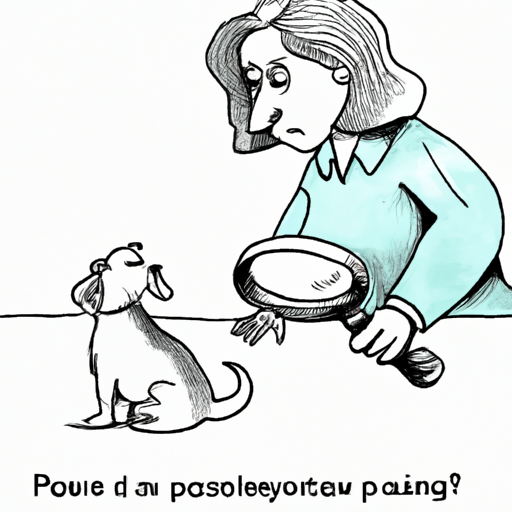Understanding Your Dog’s Eye Health
As a devoted and caring dog owner, you’re likely to notice even minor changes in your beloved pet. One such change that may be distressing is a cloudy appearance in your dog’s eyes. This can be due to a variety of reasons, including natural aging, eye diseases, or injury. It’s crucial to understand this symptom and the potential causes behind it to provide your pet with the appropriate care.
Possible Causes of Cloudiness
Cloudiness in your dog’s eyes can be caused by several different factors:
- Cataracts: This is a common cause of cloudiness, especially in older dogs. Cataracts can cause a blue or white cloudiness in your dog’s eyes and can lead to vision loss if not treated.
- Glaucoma: This is a serious condition that causes pressure build-up in the eye. It can cause a hazy or cloudy appearance and can be painful for your dog.
- Corneal Ulcers: These are scratches or injuries to the outer layer of the eye. They can cause cloudiness, as well as redness and tearing.
In addition to these, there are other less common causes such as dry eye, uveitis, and certain infections.
How to Spot the Signs
Aside from the cloudiness you’ve already noticed, there are other signs that your dog might be experiencing eye problems. These include:
- Excessive tearing or discharge
- Redness or swelling around the eyes
- Squinting or closing of the eye
- Constant pawing at the eye
If you notice any of these signs, it’s important to consult with a veterinarian as soon as possible.
Treatment Options
The treatment for your dog’s cloudy eyes will depend on the cause. Here’s an overview of what you can expect:
| Cause | Treatment |
|---|---|
| Cataracts | Surgery may be required in severe cases. |
| Glaucoma | Medication or surgery. |
| Corneal Ulcers | Medication and rest. |
Remember, early detection and treatment can significantly improve your dog’s chances of maintaining good vision.
Preventive Measures
Taking steps to prevent eye problems can be beneficial. This includes:
- Regular check-ups with the vet.
- Keeping your dog’s face clean and free of debris.
- Providing a balanced diet to ensure they get the necessary nutrients for eye health.
Frequently Asked Questions
Q1: Can I wait to see if the cloudiness goes away on its own?
No, you should contact your vet as soon as you notice the cloudiness. It could be a sign of a serious condition that requires immediate treatment.
Q2: Can cloudiness in my dog’s eyes be prevented?
While some causes can’t be prevented, regular vet check-ups and a healthy lifestyle can help maintain your dog’s eye health.
Q3: Can dogs live a normal life with cloudy eyes?
Yes, many dogs adapt well to vision loss. However, treatment can often improve vision and quality of life.
Remember, as a caring dog owner, your vigilance plays a key role in your dog’s eye health. With your attention to detail and prompt action, your dog can continue to enjoy a high-quality life.



